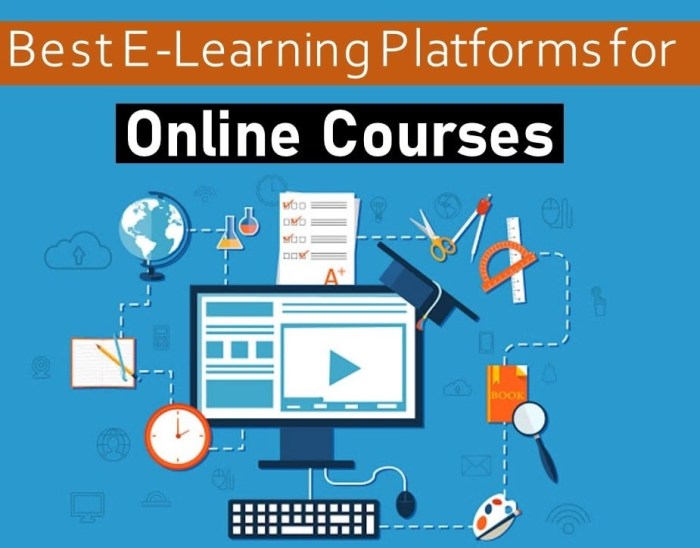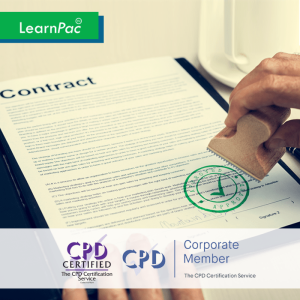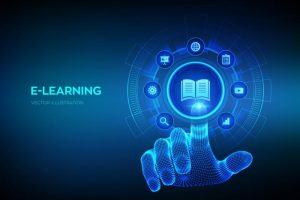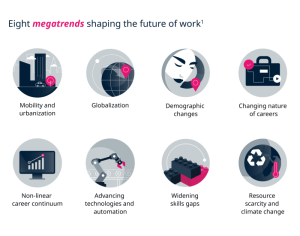
With E-learning certifications and courses at the forefront, this paragraph opens a window to an amazing start and intrigue, inviting readers to embark on a storytelling entertaining interactive style filled with unexpected twists and insights.
In today’s fast-paced world, the demand for e-learning certifications and courses has never been higher. From enhancing job prospects to revolutionizing professional development, the digital landscape offers a plethora of opportunities waiting to be explored. Let’s dive into the world of e-learning certifications and courses and uncover the keys to success in the digital age.
E-learning Certifications and Courses
In today’s competitive job market, e-learning certifications have become increasingly important for professionals looking to enhance their skills and stay relevant in their respective fields. These certifications validate knowledge and expertise, making individuals more attractive to potential employers.
Top E-learning Certification Providers and Offerings
- Coursera: Offers a wide range of courses from top universities and companies, including specializations and professional certificates.
- edX: Provides courses from universities like Harvard and MIT, covering various subjects from computer science to business management.
- LinkedIn Learning: Offers courses on professional skills, software development, and creative topics, with a focus on practical applications.
Benefits of Completing E-learning Courses for Professional Development
- Flexibility: E-learning courses allow professionals to learn at their own pace and schedule, making it easier to balance work and education.
- Cost-effective: Online courses are often more affordable than traditional classroom-based learning, saving professionals money on tuition and travel expenses.
- Access to Expert Instructors: E-learning platforms provide access to industry experts and thought leaders, offering valuable insights and knowledge.
Comparison of Different Types of E-learning Courses Available
- Self-Paced Courses: Ideal for individuals who prefer to learn at their own speed and convenience, without strict deadlines.
- Instructor-Led Courses: Provide a more structured learning environment with live sessions, assignments, and interaction with instructors and peers.
- Certification Programs: Offer comprehensive training and assessments, leading to a formal certification upon completion.
Education and Training

E-learning has become an integral part of education and training, complementing traditional methods by offering flexibility and accessibility to learners of all ages and backgrounds. With the advancement of technology, e-learning platforms have revolutionized the way people acquire knowledge and skills, making learning more interactive and engaging.
Role of E-learning in Supplementing Traditional Education
E-learning platforms provide students with the opportunity to learn at their own pace, anytime and anywhere. This flexibility allows individuals to balance their studies with work or other commitments, making education more accessible to a wider audience. Additionally, e-learning tools such as videos, quizzes, and interactive simulations enhance the learning experience, making complex concepts easier to understand.
Impact of E-learning on Skill Development and Career Advancement
E-learning plays a crucial role in skill development and career advancement by offering a wide range of courses and certifications in various fields. These online programs allow individuals to acquire new skills or enhance existing ones, helping them stay competitive in today’s job market. Moreover, e-learning platforms often collaborate with industry experts to provide relevant and up-to-date content, ensuring that learners are equipped with the knowledge and skills needed to succeed in their careers.
Key Differences Between Traditional Classroom Training and E-learning
- E-learning offers flexibility in terms of time and location, allowing learners to study at their own convenience, while traditional classroom training follows a fixed schedule.
- Traditional classroom training involves face-to-face interaction with instructors and peers, while e-learning relies on virtual communication and online forums for discussions.
- E-learning provides access to a wide range of resources such as videos, interactive simulations, and online libraries, whereas traditional classroom training typically relies on textbooks and handouts.
- E-learning allows for self-paced learning, enabling learners to revisit and review materials as needed, while traditional classroom training follows a linear curriculum with set deadlines.
- E-learning often offers real-time feedback and assessment through quizzes and exams, whereas traditional classroom training may involve delayed grading and feedback.
Concluding Remarks

As we wrap up our journey through the realm of e-learning certifications and courses, one thing is clear – the future belongs to those who embrace continuous learning and growth. With the right certifications and courses under your belt, the possibilities are endless. So, seize the day and unlock a world of opportunities in the digital age!
User Queries
What are the benefits of e-learning certifications in today’s job market?
E-learning certifications showcase your expertise and commitment to continuous learning, making you stand out to potential employers in a competitive job market.
How do e-learning platforms revolutionize the traditional education system?
E-learning platforms offer flexibility, accessibility, and personalized learning experiences, challenging the traditional classroom setting and catering to diverse learning styles.
What types of e-learning courses are available, and how do they differ?
E-learning courses come in various formats such as self-paced, instructor-led, blended learning, and more, each offering unique advantages for learners based on their preferences and schedules.
What impact does e-learning have on skill development and career advancement?
E-learning provides opportunities for upskilling, reskilling, and acquiring new knowledge, empowering individuals to advance their careers and stay competitive in a rapidly evolving job market.
What are the key differences between traditional classroom training and e-learning?
Traditional classroom training is often rigid and time-bound, while e-learning offers flexibility, cost-effectiveness, and the ability to learn at your own pace, catering to the modern learner’s needs.





